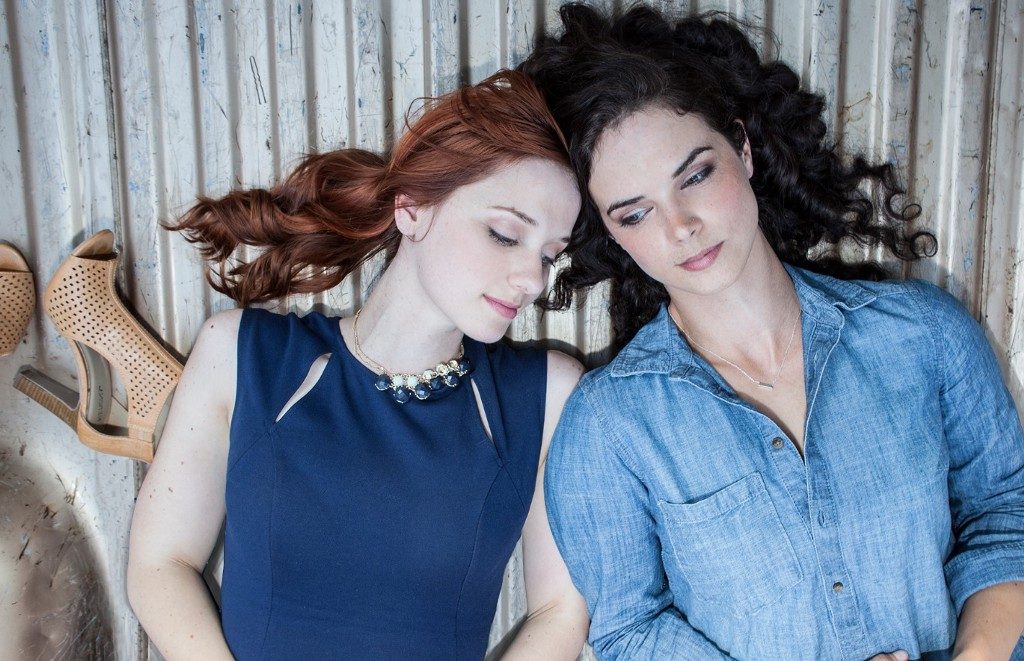Maura Anderson has worked in independent film production since 2006. She production managed Academy Award-nominated “Winter’s Bone,” as well as “On the Ice” and “Ceremony,” among others. She has produced numerous features and digital series for companies such as Fox, IFC, and New Form Digital. “Heartland” is her feature directorial debut.
“Heartland” will make its International Premiere at the 2016 Inside Out LGBT Film Festival on June 2.
W&H: Describe the film for us in your own words.
MA: “Heartland” is the story of an Oklahoma artist struggling with a recent loss. She finds escape in a reckless affair with her brother’s girlfriend.
W&H: What drew you to this story?
MA: It was filled with complex and interesting lead female characters. It also happened to have a lesbian lead, but the story wasn’t about her being gay. This was a direction I wanted to see movies head because it reflects our current world.
There are so many untold stories because everyone thinks a story with a female lead or an LGBT character that isn’t playing the comedic sidekick isn’t going to make any money, but there is a huge underserved audience eager for this content to be done well.
W&H: What do you want people to think about when they are leaving the theater?
MA: I think there are so many themes to connect to — love, denial, tolerance, and family. Films have a way of making you feel less alone. They are always a reminder for me that we’re all in this life together, and there are so many people dealing with the same struggles even if circumstances are different.
W&H: What was the biggest challenge in making the film?
MA: We filmed in the middle of Oklahoma’s tornado season, so the weather. Our first day of filming was shut down five hours early because of an incoming tornado. Our crew housing was taken out by a tornado — thank god it happened a week before everyone arrived.
Our tree house location was shut down due to flooding and opened for just two days our last week of shooting allowing us to film there before it closed again.
W&H: How did you get your film funded? Share some insights into how you got the film made.
MA: We did a crowdfunding campaign through Indiegogo in conjunction with Fractured Atlas, a fiscal sponsorship program. Then we received an incredible cash rebate from Oklahoma’s film enhancement rebate program. We also had a lot of incredibly talented people working for little to no money because they believed in the project.
W&H: What’s the best and worst advice you’ve received?
MA: The best advice was to go with my instinct. When someone asks a question, the answer that you have immediately is probably the right one. Go with it. You can wander around and think about it, and if you change your mind so be it: everyone gets to be wrong sometimes. But chances are it’s the decision you would’ve gone with even if you’d thought about it for days.
Worst advice? That’s a tough one. There’s a lot of pressure to get films done for certain festivals and I would say don’t share your film until it’s ready. You only get one first impression no matter what anyone says. Even though programmers all say they’re used to watching rough cuts with temp music, no color, no sound, etc. it still impacts how you view a film and each of those steps makes the experience better, so wait and put your best foot forward.
W&H: What advice do you have for other female directors?
MA: Just do it. Find your support, find your team, and go make things. You can wait forever for permission or you can figure out a way to do it yourself and show people what your capable of. There are so many discouraging — and amazing — moments along the way. It definitely helps to have some comrades in battle.
W&H: Name your favorite woman-directed film and why.
MA: Anything by Kathryn Bigelow, though “Point Break” holds a special place in my heart. She’s an idol of mine — she is just so goddamn smart. She’s an incredible filmmaker who inverts traditional masculine and feminine roles, and makes movies that most would say have a male sensibility. She has a independent attitude and learned early on that “if [she] had a prayer of shooting something that intrigued [her], [she] was going to have to be the architect of [her] own fate.” I love that.
“Big” by Penny Marshall and “The Piano” by Jane Campion are also long-time favorites of mine.
W&H: What does it mean for you to have your film screen at an LGBT festival?
MA: Sharing it with any audience has been so rewarding. You’re with the film in a bubble for so long and it’s nice to see and hear people reacting, especially when it’s positive. This is our first LGBT festival and I’m very excited to see what the response is here!







